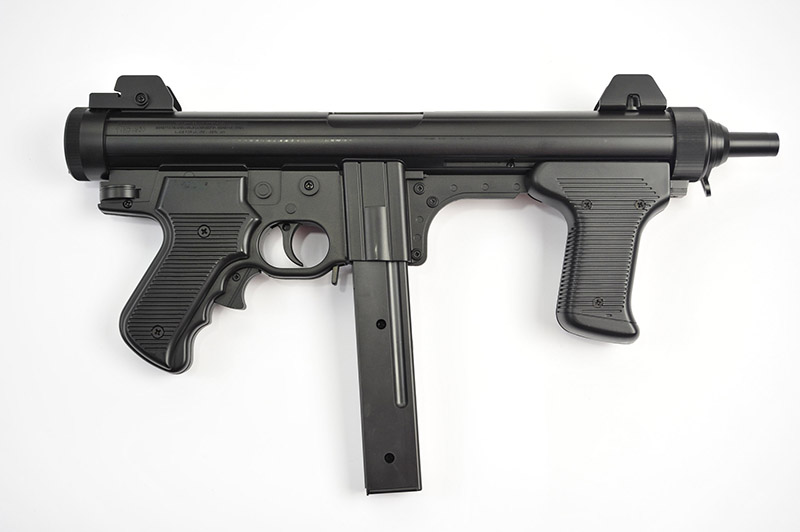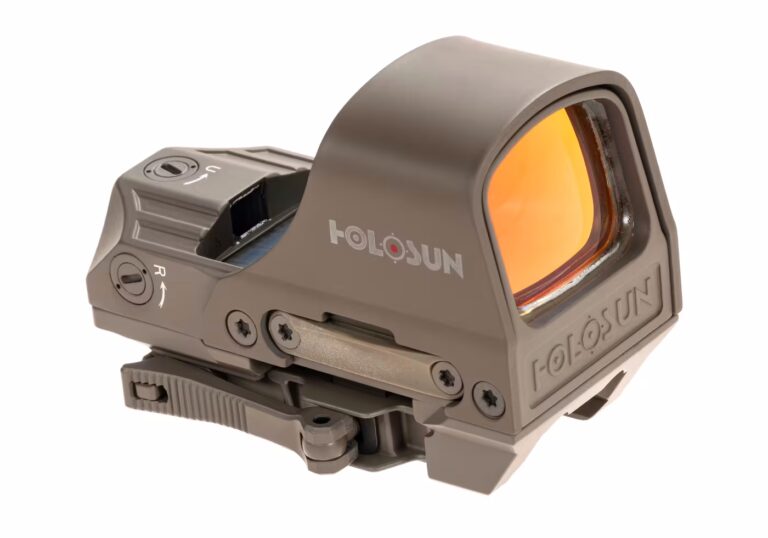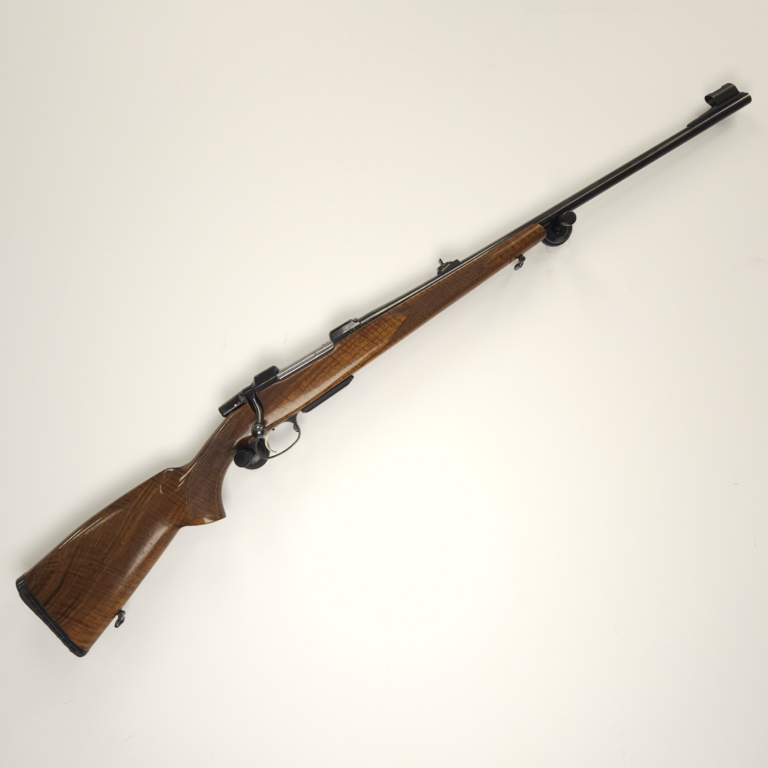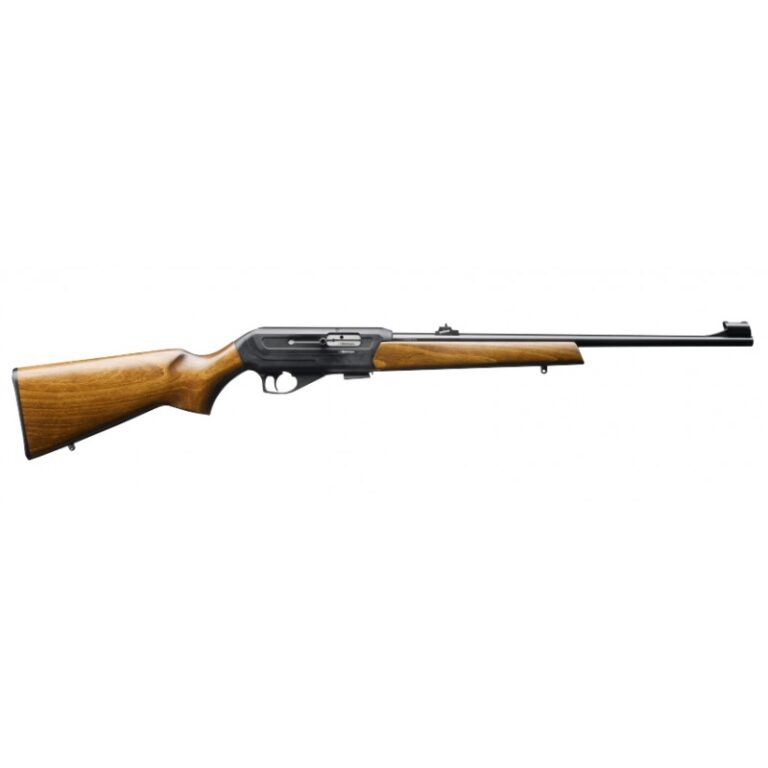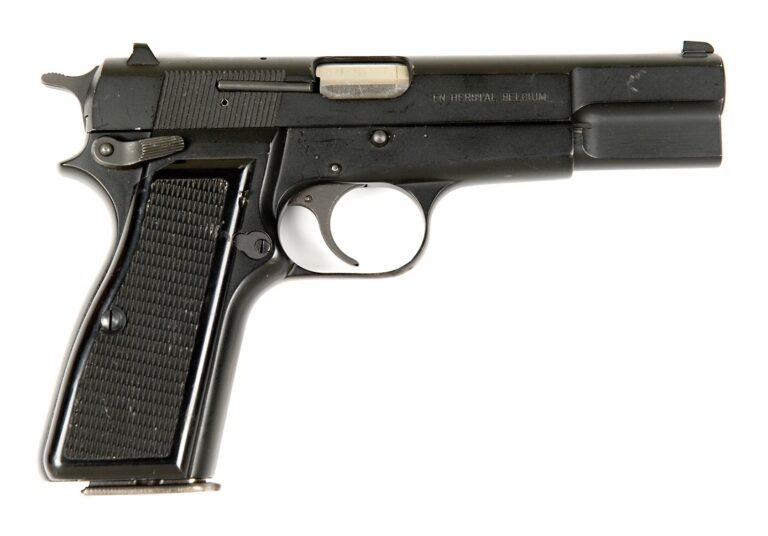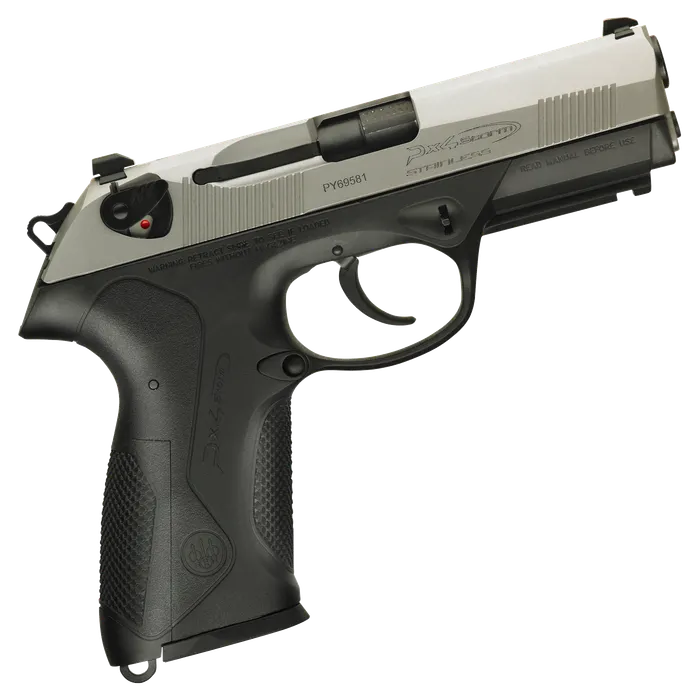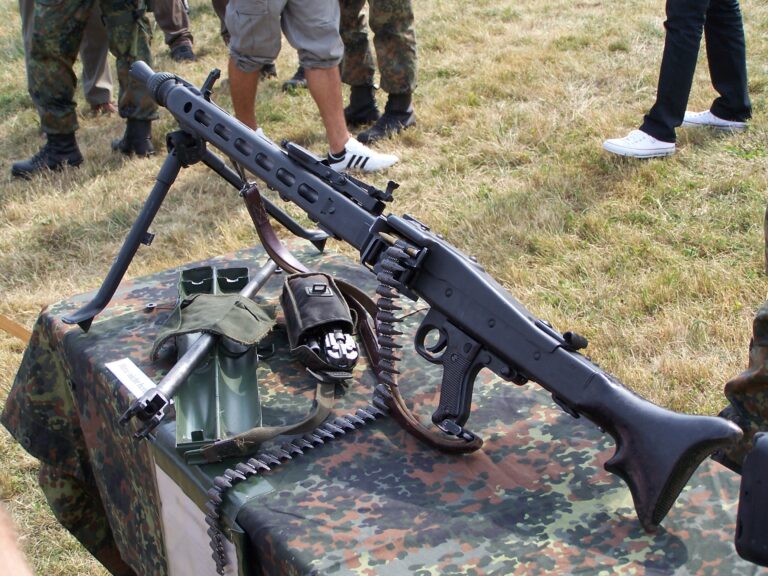Introduction
The Beretta M12, also known as PM12 (Pistola Mitragliatrice Modello 12), is an Italian machine pistol developed by the famous Beretta firm in the 1950s. Compact, reliable and highly maneuverable, it is designed to meet the needs of police forces and military units engaged in close combat. Thanks to its robust design and open-breech operation, the M12 quickly became a standard in many countries.
Background and development
After the Second World War, Beretta sought to renew its machine pistols, particularly the MAB 38 models, which had become obsolete. Inspired by war experience and advances in light weaponry, the M12 was designed in 1959 to combine mechanical simplicity, efficient rate of fire and compact size.
It was officially adopted by the Italian army in 1961 and quickly distributed to other forces in Italy, including the police, carabinieri and various special units. Its modular design and compactness make it a preferred choice for urban environments.
Technical specifications
| Features | Detail |
|---|---|
| Caliber | 9×19 mm Parabellum |
| Length (stock folded / unfolded) | 418 mm / 660 mm |
| Barrel length | 200 mm |
| Magazine capacity | 20, 32 or 40 shots |
| Empty weight | Approx. 3.5 kg |
| Firing rate | 550 to 600 shots/min |
| Mechanism | Open cylinder head, blowback |
| Firing mode | Semi-automatic / automatic |
Ergonomics and design
The Beretta M12 adopts a simple, functional architecture, with open-breech mass locking. This technical choice favors reliability, even in adverse conditions. The deep-drawn steel case and robust internal parts ensure long life.
Among its strengths:
Side-folding metal stock for easy transport and use in vehicles.
Ergonomic pistol grip with integrated safety lever.
Dual-fire selector for semi-auto or burst firing.
Progressive release for better control when shooting.
Its relatively short barrel, combined with a moderate rate of fire, makes it highly maneuverable and precise in close-quarter combat situations.
Main variants
Beretta M12 (original)
The basic model, adopted in 1961. Used for several decades, notably by the Italian police and army.
M12S
Improvement of the original model with :
Additional safety device.
Lighter materials for certain parts.
Compatible with modern mufflers and accessories.
M12S2
Later version for export and special contracts, including modified handguards and interfaces for tactical accessories.
Taurus MT-12
Licensed version produced in Brazil by Taurus. Widely used by Brazilian forces.
Frim MGP-15
Peruvian variant directly inspired by the M12, but made locally with adjustments.
Comparison with other submachine guns
| Model | Gauge | Capacity |
|---|---|---|
| Beretta M12 | 9×19 mm | 32 shots |
| Uzi | 9×19 mm | 25/32 shots |
| MP5 | 9×19 mm | 30 shots |
The Beretta M12 is lighter and simpler than the MP5, but with slightly lower accuracy. It remains easier to handle than the Uzi, while retaining its excellent robustness.
International use
The Beretta M12 is used in more than 20 countries, including :
Italy: armed forces, police, carabinieri.
Brazil: With the Taurus MT-12.
Argentina, Chile, Egypt, Indonesia, Lebanon, Peru, South Africa and others.
It is often seen in low-intensity conflicts, special operations and law enforcement missions. Its reliability and easy maintenance make it a durable and popular weapon in many parts of the world.
Current status
Although largely replaced in modern units by more modular weapons such as the MPX, MP7 orAPC9, the M12 remains in service in several countries. It is also popular on the civilian market in certain semi-automatic versions.
Conclusion
The Beretta M12 marked the history of light weaponry by offering a compact, reliable and simple solution for armed forces and police. Its versatility, robustness and adaptability made it a benchmark choice for several decades. Even today, it remains an emblematic piece, both in private collections and in military and police arsenals around the world.

